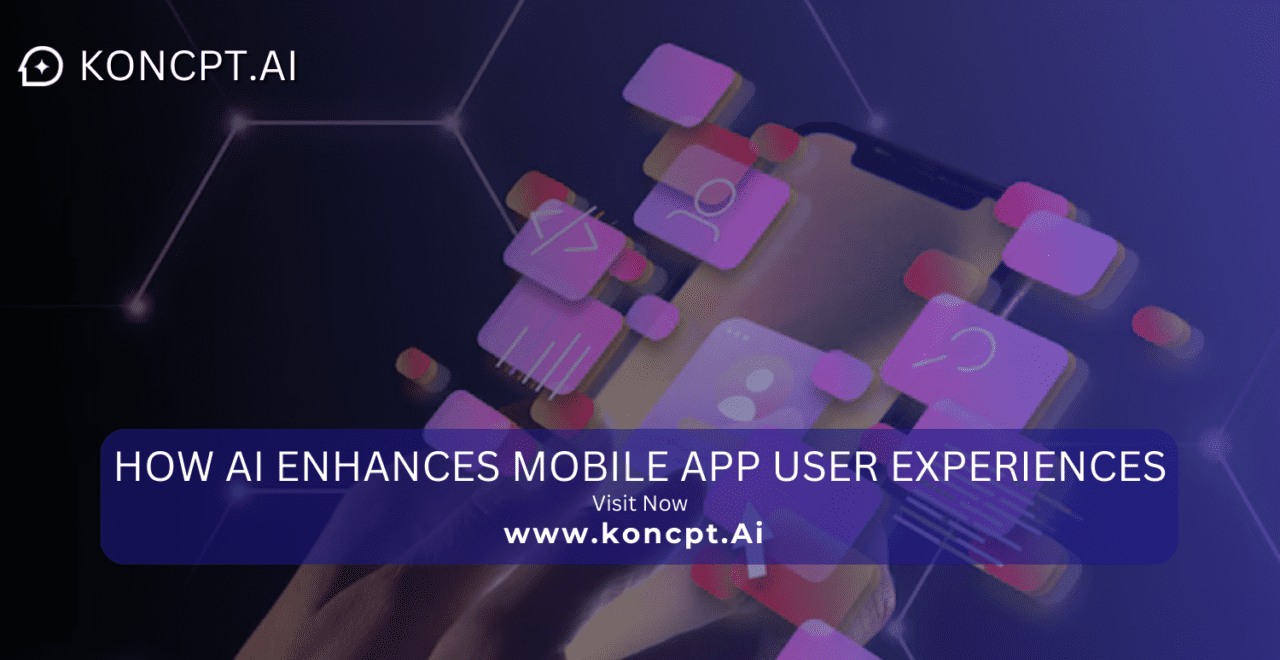How AI Enhances Mobile App User Experiences
In today’s competitive digital landscape, delivering a seamless and engaging user experience (UX) is paramount for mobile app success. With users expecting more intuitive and personalized interactions, businesses are turning to artificial intelligence (AI) to revolutionize mobile app experiences. By leveraging AI’s capabilities, apps are becoming smarter, faster, and more responsive to user needs. Let’s explore how AI is transforming mobile app user experiences.
1. Personalized Recommendations
AI enables mobile apps to analyze user behavior, preferences, and interactions to deliver highly personalized recommendations. For instance, streaming platforms like Netflix and Spotify use AI algorithms to suggest content based on users’ viewing and listening habits. Similarly, e-commerce apps leverage AI to recommend products tailored to individual shopping patterns, significantly enhancing engagement and boosting conversions.
By learning from user data, AI creates a personalized journey for each user, making apps more relevant and appealing.
2. Voice Recognition and Conversational Interfaces
Voice-enabled AI, powered by technologies like natural language processing (NLP) and machine learning, has redefined how users interact with mobile apps. Voice assistants such as Siri, Google Assistant, and Alexa make it easy for users to perform tasks through voice commands.
AI-powered chatbots integrated into apps provide 24/7 support, answering queries and assisting users in real time. This conversational interface not only enhances convenience but also fosters user satisfaction and loyalty.
3. Predictive Analytics for User Behavior
Predictive analytics powered by AI helps mobile apps anticipate user needs and behaviors. For example, ride-sharing apps like Uber use AI to predict demand, optimize pricing, and reduce wait times. Fitness apps analyze user activity data to suggest workout plans or goals tailored to their progress.
By anticipating user requirements, AI ensures apps deliver proactive and relevant experiences, keeping users engaged and returning for more.
4. Improved Accessibility
AI is making mobile apps more accessible to users with diverse needs. AI-driven features like voice-to-text, image recognition, and real-time translations ensure inclusivity, enabling users with disabilities or language barriers to use apps effectively. For instance, apps like Seeing AI assist visually impaired users by describing objects, text, and surroundings using AI-powered image processing.
5. Smarter App Security
Security is a critical aspect of user experience. AI enhances app security by identifying potential threats and fraudulent activities in real time. Biometric authentication, such as facial recognition and fingerprint scanning, powered by AI, adds a layer of convenience and safety for users. Apps can also detect unusual login patterns or malicious activities, ensuring data integrity and user trust.
6. Context-Aware Features
AI-powered mobile apps can adapt dynamically to user context, such as location, time of day, or past interactions. Navigation apps like Google Maps use AI to provide real-time traffic updates and route suggestions. Similarly, weather apps deliver hyperlocal forecasts by analyzing data patterns and user location.
This context-aware functionality ensures apps remain relevant and valuable in real-world scenarios.
Conclusion
AI is transforming mobile app user experiences by making them more personalized, accessible, and secure. With capabilities like predictive analytics, voice recognition, and context-aware features, AI ensures that apps stay ahead of user expectations. As technology evolves, AI will continue to push the boundaries of innovation, creating mobile apps that not only meet user needs but also anticipate them.
By integrating AI into mobile app development, businesses can deliver unparalleled user experiences, fostering engagement, loyalty, and long-term success.



